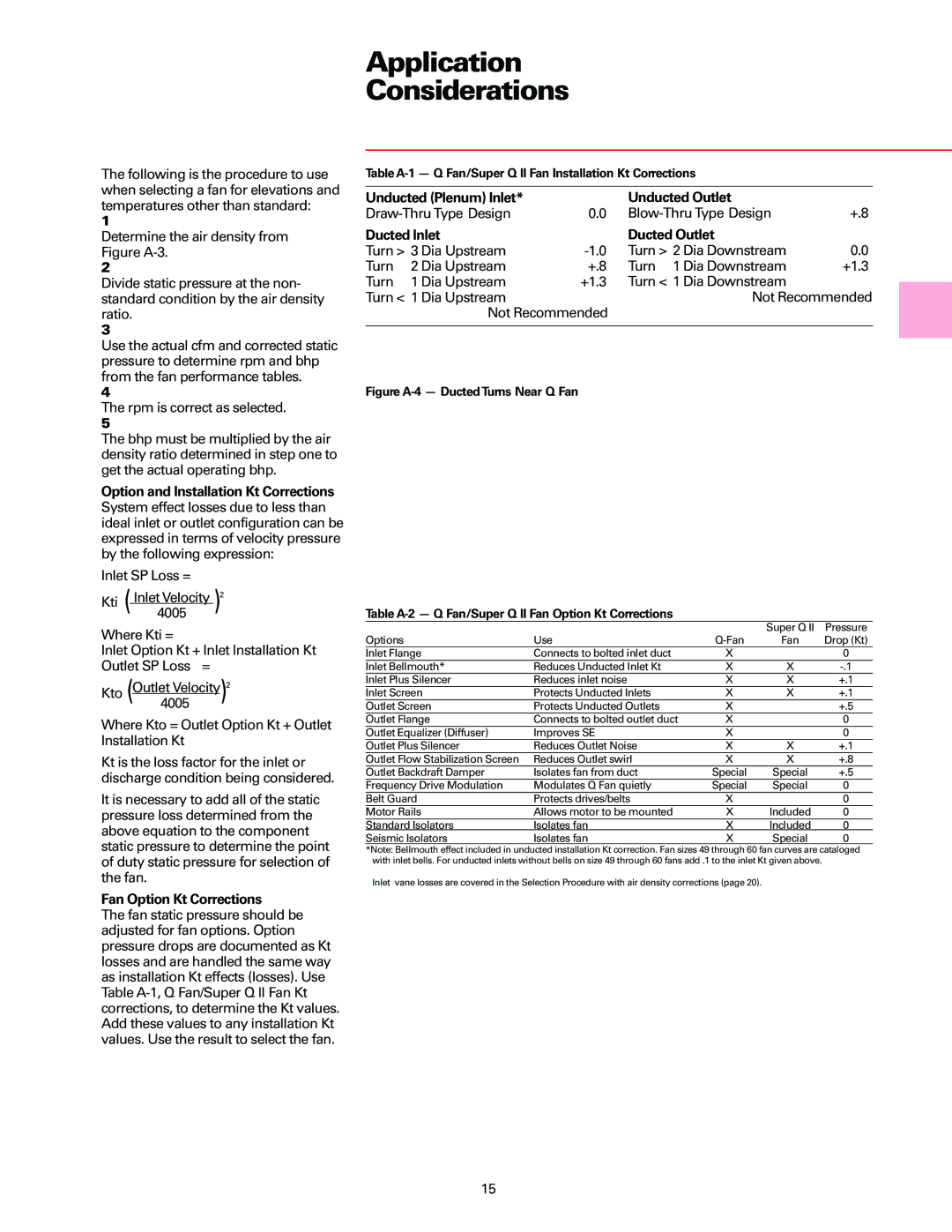Fan specifications
Trane is a well-known name in the heating, ventilation, and air conditioning (HVAC) industry, and one of their standout products is the Trane Fan. Designed to provide efficient and effective airflow, the Trane Fan is a versatile solution suited for both residential and commercial applications.One of the main features of the Trane Fan is its Energy Efficiency. With increasing energy costs, having a fan that operates efficiently is crucial. Trane fans are designed with advanced motor technology that enhances performance while reducing energy consumption. This not only helps lower utility bills but also contributes to a more sustainable environment.
The Variable Speed Technology is another notable characteristic. Trane fans come equipped with variable speed motors that adjust the airflow according to the specific needs of a space. This adaptability means that the fan can run at lower speeds, providing quiet operation while maintaining comfort levels, and ramping up power when needed for more intense cooling or ventilation.
Durability and robustness are core attributes of Trane fans. Constructed from high-quality materials, these fans are built to withstand harsh conditions and continue to function optimally over time. This longevity is essential for commercial settings where reliability is paramount.
Additionally, Trane delivers innovative sound-reduction technologies within their fan designs. Special engineering ensures that these units operate quietly, making them ideal for environments such as offices, schools, and homes where noise can be a distraction.
Another significant aspect is Smart Technology Integration. Trane fans are compatible with various smart home systems, allowing users to control their systems remotely. This feature enhances convenience, enabling homeowners and facility managers to monitor and adjust air quality effortlessly.
In terms of ease of installation, Trane Fans are designed with user-friendly features that facilitate quicker setup and less hassle. Their modular designs allow for flexibility in installation across various applications.
In summary, the Trane Fan stands out due to its energy efficiency, variable speed technology, durability, sound-reduction capabilities, smart technology integration, and ease of installation. These characteristics make Trane fans a reliable choice for enhancing indoor air quality across diverse environments.

